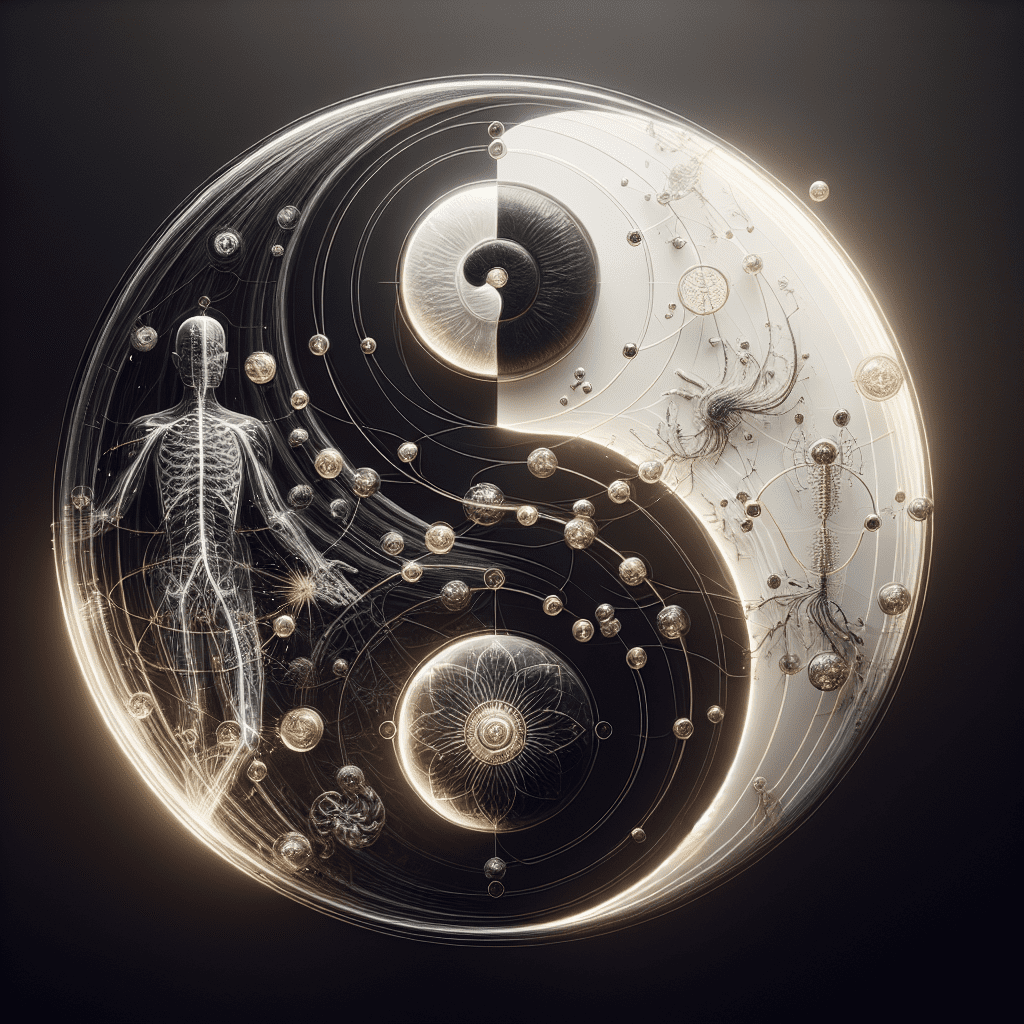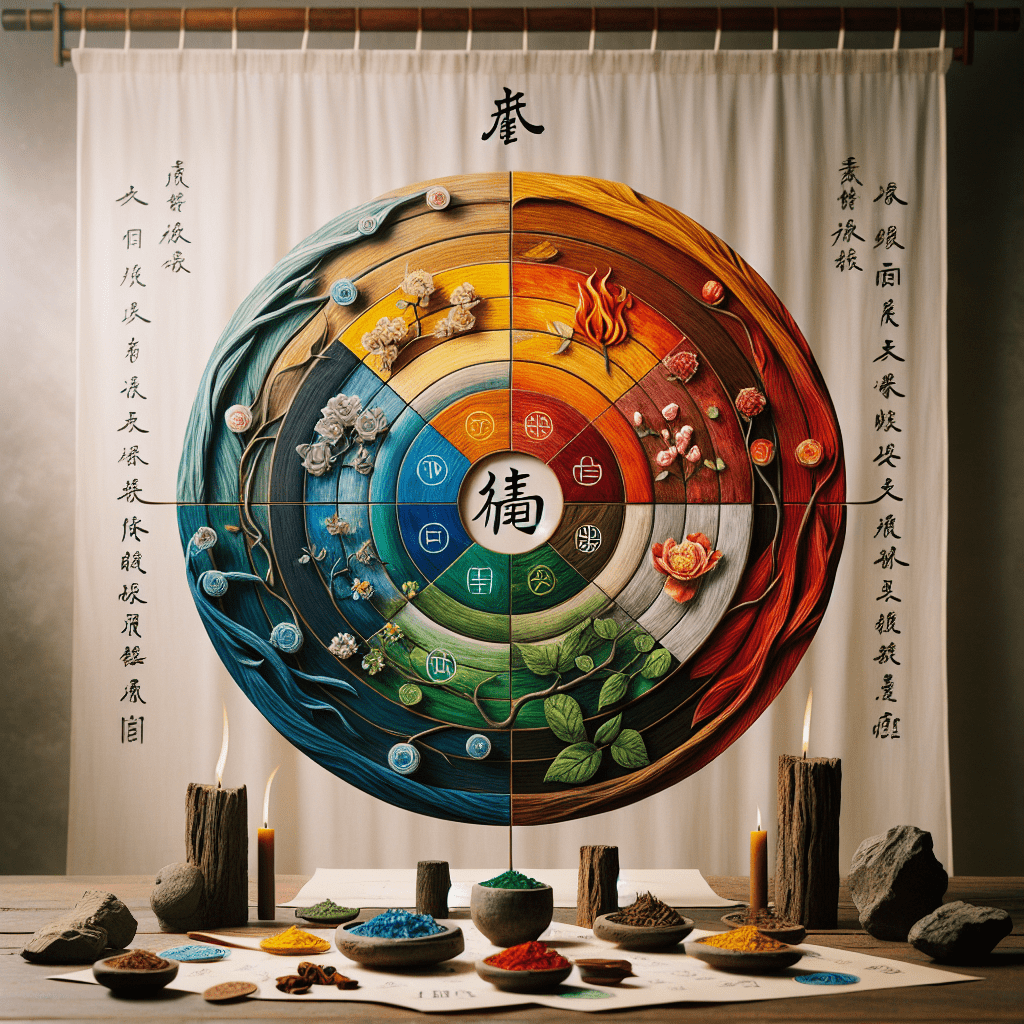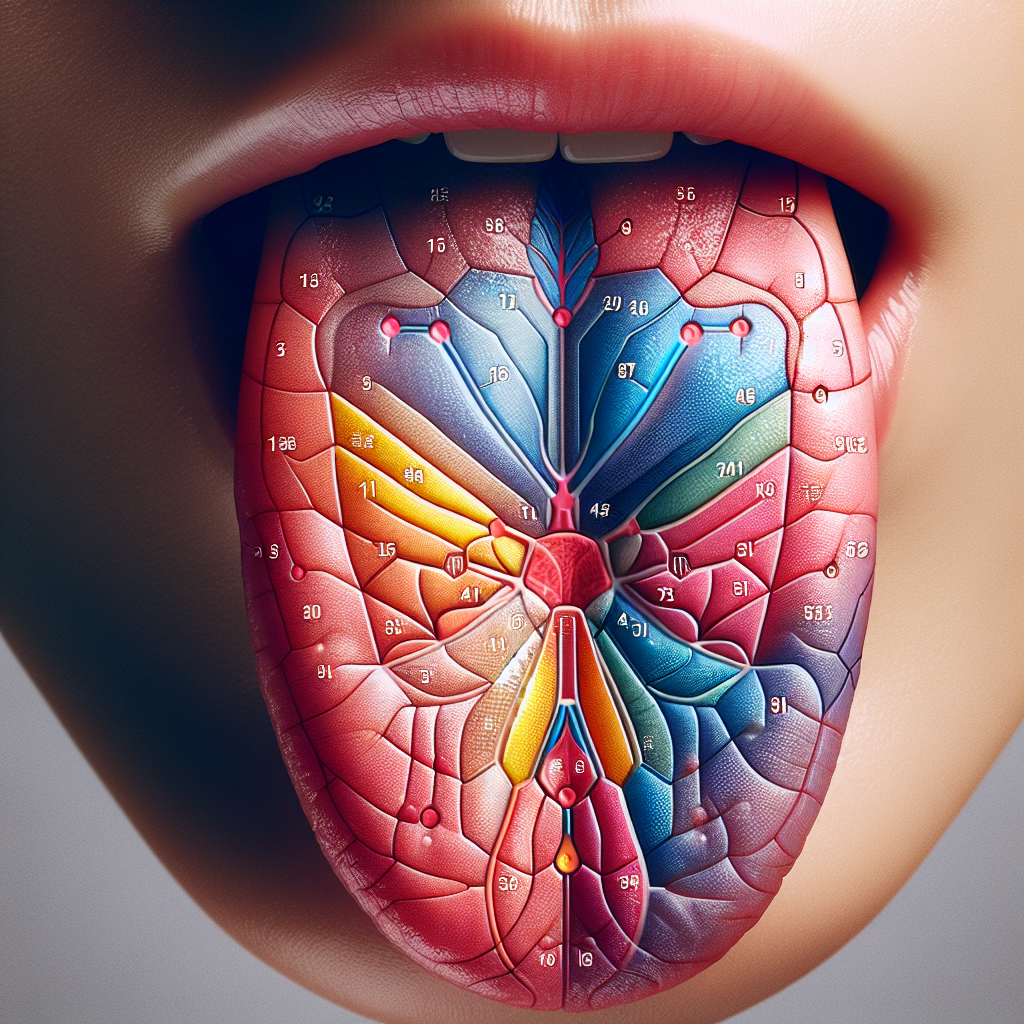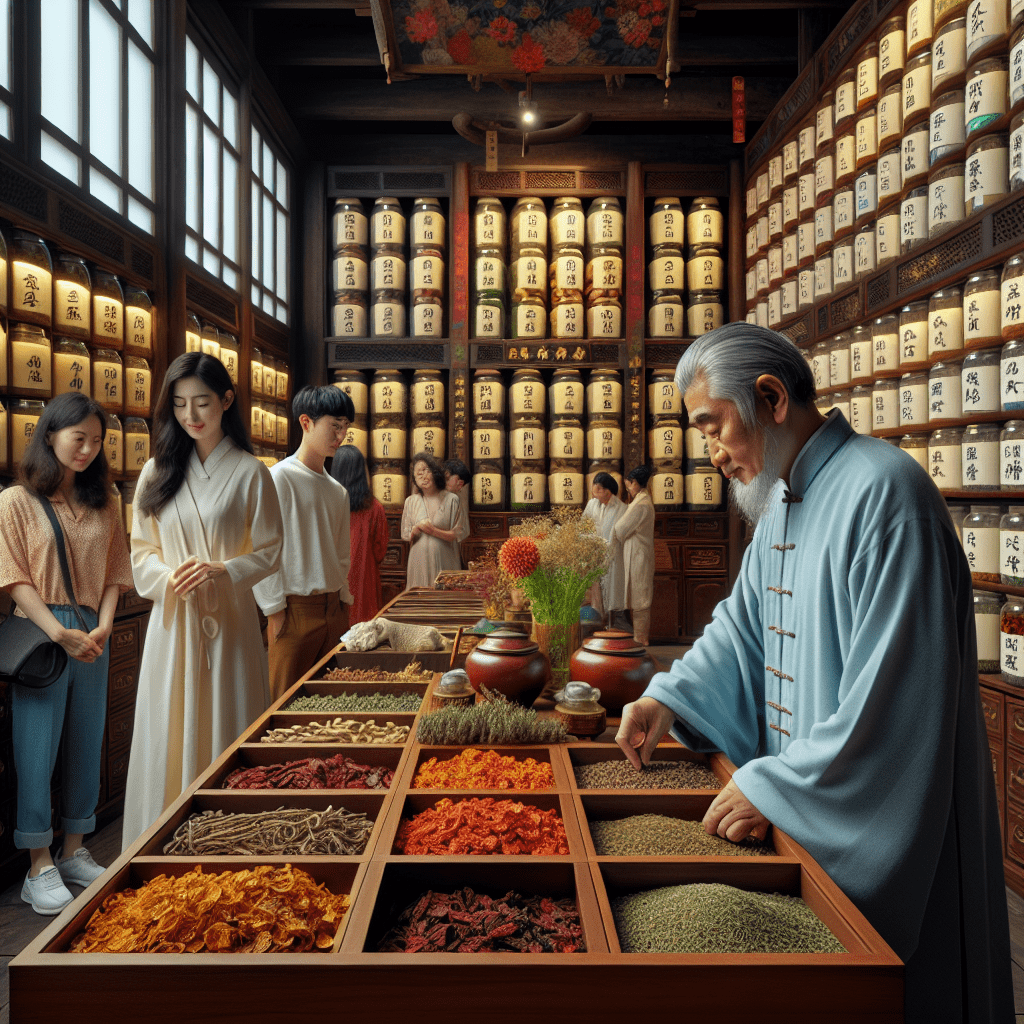In a world where prescription bottles often outnumber holistic solutions for mental health, more and more people are turning their gaze eastward. The search for gentler, more comprehensive approaches to treating depression has led many to explore Traditional Chinese Medicine (TCM), a healing system that was addressing mental health concerns long before “depression” had a clinical name.
As stress levels climb and conventional treatments don’t always provide complete relief, this ancient practice offers something different: a whole-person approach that treats not just symptoms but the underlying imbalances that TCM practitioners believe cause emotional distress in the first place.
Understanding the TCM Approach to Depression
Traditional Chinese Medicine views depression quite differently than Western medicine. Rather than seeing it as primarily a chemical imbalance in the brain, TCM recognizes depression as a complex condition involving disruptions in the body’s vital energy flow, or “Qi” (pronounced “chee”).
When it comes to Traditional Chinese Medicine depression treatment, practitioners don’t just ask about your mood—they want to know about your sleep, digestion, energy levels, and even the specific qualities of your physical pain. This holistic perspective sees your emotional state as inseparable from your physical health.
According to TCM theory, depression often stems from stagnation of Qi, particularly affecting the liver. This stagnation can manifest as irritability, frustration, and the persistent low mood we associate with depression. Other patterns may involve deficiencies in heart or spleen energy, each creating distinct symptoms that require tailored treatment approaches.
What makes TCM particularly fascinating is its personalization. Two people with depression might receive completely different treatments based on their unique constitutional types and specific imbalances—a stark contrast to the often one-size-fits-all approach of conventional antidepressants.
Herbal Remedies: Nature’s Antidepressants
The pharmacopeia of Traditional Chinese Medicine depression treatments is vast and sophisticated, with formulations refined over thousands of years of clinical observation.
One of the most famous herbal remedies for depression is Xiaoyao San (Free and Easy Wanderer), a blend that typically includes ingredients like Bupleurum, Chinese Angelica (Dong Quai), White Peony Root, and Poria mushroom. This formula specifically targets liver Qi stagnation, which TCM practitioners often identify as a root cause of depression accompanied by irritability and digestive issues.
For those whose depression manifests with more anxiety and insomnia, Suanzaoren Tang (Sour Jujube Decoction) might be prescribed. This formula nourishes heart blood and calms the spirit, addressing the TCM view that some depression stems from an imbalance between the heart (which houses the spirit) and the kidneys (which store our deepest reserves of energy).
Yueju pills, another Traditional Chinese Medicine depression remedy, have even caught the attention of researchers for their rapid-acting properties. Some studies suggest these pills may produce antidepressant effects similar to ketamine but without the side effects—potentially offering relief for those with treatment-resistant depression.
What’s particularly remarkable about these herbal treatments is their tailored approach. A skilled TCM practitioner doesn’t simply prescribe herbs for “depression” but instead creates a unique formula addressing your specific pattern of disharmony, often combining several herbs that work synergistically to restore balance.
“In TCM, we’re not just treating a mental health diagnosis,” explains Dr. Lin Chen, a TCM practitioner with over 20 years of experience. “We’re treating the whole person—their physical symptoms, emotional state, and energy imbalances that together create what Western medicine calls depression.”
Acupuncture: Redirecting Energy for Emotional Balance
When most people think of Traditional Chinese Medicine, acupuncture often comes to mind first. This practice of inserting thin needles into specific points along the body’s energy pathways (meridians) has shown promising results for depression in numerous studies.
Acupuncture works on the principle that by stimulating certain points, practitioners can redirect the flow of Qi, removing blockages and restoring harmony to the body’s energy system. For depression specifically, points along the liver, heart, and kidney meridians are often targeted to address the underlying imbalances thought to contribute to depressive symptoms.
Research on acupuncture for depression has shown encouraging results. A 2019 study published in the Journal of Affective Disorders found that acupuncture significantly reduced depression severity compared to placebo treatments. Another study from Harvard Medical School suggested that acupuncture may be particularly effective for depression accompanied by chronic pain—a common combination that can be difficult to treat with conventional methods alone.
Sarah Johnson, who struggled with persistent depression for years, found relief through weekly acupuncture sessions: “Medication helped somewhat, but I still felt disconnected and foggy. After just a month of acupuncture treatments, I noticed I was sleeping better and feeling more like myself again. It wasn’t an overnight miracle, but the changes were real and lasting.”
The beauty of acupuncture lies in its gentle approach and minimal side effects. Unlike many antidepressants, which can cause weight gain, sexual dysfunction, or emotional numbing, acupuncture tends to produce few negative effects while potentially offering additional benefits like improved sleep and reduced physical pain.
Mind-Body Practices: Moving Meditation for Emotional Healing
Traditional Chinese Medicine depression treatments extend beyond herbs and needles to include movement practices that integrate body, breath, and mind. Tai chi and qigong represent two powerful tools in the TCM toolkit for emotional wellness.
Often described as “moving meditation,” these practices combine gentle, flowing movements with mindful breathing and focused attention. For someone with depression, these qualities make tai chi and qigong particularly valuable, as they address multiple aspects of well-being simultaneously.
Research supports their effectiveness. A 2018 meta-analysis published in Psychiatry Research found that tai chi significantly reduced depression symptoms and improved quality of life. Similarly, a study in the Journal of Affective Disorders demonstrated that qigong practice reduced depression severity while improving overall energy levels.
“What makes these practices so effective for depression is their multidimensional nature,” says Maria Zhang, a tai chi instructor who specializes in teaching students with mental health challenges. “The gentle movement improves physical well-being, the breathing techniques calm the nervous system, and the meditative aspects help break the cycle of rumination that often accompanies depression.”
Both tai chi and qigong work by promoting the smooth flow of Qi throughout the body, addressing the stagnation that TCM views as a key factor in depression. The slow, intentional movements also cultivate a state of mindful awareness that can help interrupt negative thought patterns and bring practitioners into the present moment—a powerful antidote to the past-focused rumination or future-oriented worry that often characterizes depression.
Unlike high-intensity workouts that might feel overwhelming to someone with depression, these gentle practices offer an accessible entry point to movement, making them ideal for those whose energy and motivation may be compromised.
Lifestyle Medicine: The Foundation of TCM Depression Care
Perhaps the most profound aspect of Traditional Chinese Medicine depression treatment is its emphasis on daily lifestyle factors as medicine. In TCM, how you eat, sleep, move, and manage stress aren’t just background factors—they’re central to treatment.
Diet plays a crucial role in TCM’s approach to emotional health. Certain foods are thought to stagnate Qi (like greasy, heavy foods), while others help it flow smoothly (like leafy greens and moderate amounts of sour foods that support liver function). A TCM practitioner might recommend specific dietary adjustments based on your particular pattern of imbalance.
Sleep quality receives special attention in Traditional Chinese Medicine depression treatment. TCM recognizes the profound connection between sleep disruption and emotional distress, viewing them not as separate issues but as interconnected manifestations of the same underlying imbalances.
Emotional regulation techniques also form a core part of TCM lifestyle medicine. Practices like meditation and conscious breathing help manage the “seven emotions” that, when excessive, TCM believes can disrupt Qi flow and contribute to depression. Learning to process emotions rather than suppressing them helps prevent the stagnation that can lead to depressive symptoms.
Even your daily rhythm falls within the scope of TCM care. Traditional Chinese Medicine emphasizes living in harmony with natural cycles, including going to bed and rising at times that support optimal organ function according to the body’s internal clock.
Together, these lifestyle elements create a foundation that supports and enhances the effects of herbal remedies and acupuncture, potentially making Traditional Chinese Medicine depression treatment more effective and sustainable in the long term.
Integrating Ancient Wisdom with Modern Needs
Traditional Chinese Medicine offers a comprehensive framework for addressing depression that aligns beautifully with our growing understanding of mental health as a whole-person issue, not just a brain chemistry problem. Its emphasis on personalization, root causes, and gentle interventions makes it an appealing complement or alternative to conventional treatments.
However, it’s worth noting that serious depression should always be addressed with appropriate medical support. The most balanced approach often combines the best of both worlds—using TCM’s holistic methods alongside conventional care when needed.
What makes Traditional Chinese Medicine depression treatments particularly relevant today is their alignment with what many people are seeking: natural approaches that address root causes, treat the whole person, and support overall wellness rather than just targeting symptoms.
At HerbalsZen, we believe in this integrated approach—honoring the wisdom of traditional practices while embracing modern innovations that make these ancient healing methods more accessible and effective. Our philosophy centers on understanding each person’s unique constitution and life circumstances, then crafting personalized recommendations that restore balance on all levels.
Whether you’re curious about exploring herbal remedies, experiencing acupuncture, learning tai chi, or simply incorporating TCM wisdom into your daily habits, Traditional Chinese Medicine offers a rich tapestry of options for supporting emotional wellness. In a world where depression rates continue to rise, perhaps these ancient practices hold some of the wisdom we need to heal our modern blues.




